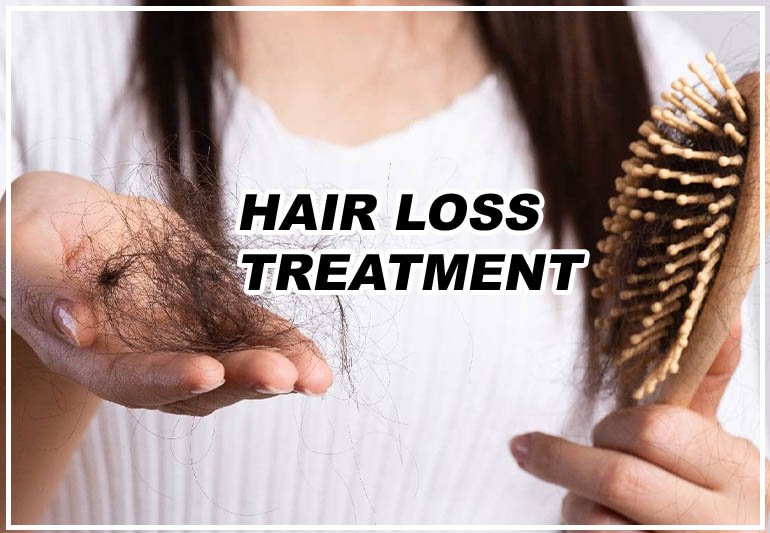Meet Our Doctor


Dr. Neha Rajesh Rathi
Consultant Dermatologist & Cosmetologist
Hair Loss Treatment

Hair Loss

Awareness and Efforts for Hair Loss Prevention:

Thinning hair doesn’t essentially mean that you’ll become bald. Any person who experiences early signs is known as Alopecia. It recognizes that there are various reasons as to why hair becomes thin and less dense or disappears altogether. Once the cause is known, there might be a means to stop or even overturn the loss. The causes include genetics, scarring, chemical exposure, hormonal changes (those related with menopause and pregnancy), trauma and emotional stress, infections, parasites, poor or imbalanced nutrition and even methods of hair styling.
About a generation ago, hair loss prevention was very difficult to achieve. Some methods that were used then didn’t work. Today, there are much better ways to do so as everyone knows about the several causes of hair loss and the ways to treat them. Better products, including some pharmaceuticals are available, also smarter ways of styling the hair can help a lot. At times, the solution might be to lessen stress in your life, get some workout and adopt better nutrition habits.
Understanding the Causes of Hair Loss

- Genetic factors and hereditary patterns.
- Hormonal imbalances, such as those associated with aging or medical conditions.
- Nutritional deficiencies and poor diet.
- Stress, both physical and emotional.
- Certain medications or medical treatments.
Proven Hair Loss Treatments

- FDA-approved medications like minoxidil and finasteride.
- Low-level laser therapy (LLLT) to stimulate hair growth.
- Platelet-rich plasma (PRP) therapy for regenerating hair follicles.
- Scalp micropigmentation (SMP) for a natural-looking hairline.
Treatment of Hair loss?

Medications: Certain medications can help slow down hair loss and promote regrowth. Two commonly used medications are minoxidil and finasteride. Minoxidil is a topical solution applied to the scalp, while finasteride is an oral medication for men. These medications may need to be used long-term to maintain results.
Hair transplant: Hair transplant surgery involves removing hair follicles from one part of the body (usually the back of the scalp) and implanting them into the areas affected by hair loss. This procedure is effective for permanent hair restoration, but it can be costly and requires surgical expertise.
Laser therapy: Low-level laser therapy (LLLT) uses red light to stimulate hair growth. It is thought to increase blood flow to the hair follicles and promote regrowth. Laser combs, caps, and helmets are available for home use, while some clinics offer in-office laser treatments.
Platelet-rich plasma (PRP) therapy: PRP therapy involves injecting concentrated platelets from your own blood into the scalp. Platelets contain growth factors that can stimulate hair growth. This treatment is still being researched, but some evidence suggests it may be effective in certain cases.
Natural Remedies for Hair Loss:

- A balanced diet rich in essential nutrients like vitamins, minerals, and proteins.
- Herbal remedies like saw palmetto, rosemary, and aloe vera.
- Scalp massages to improve blood circulation and stimulate hair follicles.
- Avoiding harsh hair treatments and heat styling tools.
Advanced Hair Restoration Techniques:

- Hair transplant surgery, including follicular unit extraction (FUE) and follicular unit transplantation (FUT).
- Robotic hair restoration for precise and efficient grafting.
- Scalp microneedling to enhance absorption of hair growth products.
Lifestyle Changes for Healthy Hair:

- Managing stress levels through exercise, meditation, or counseling.
- Avoiding smoking and excessive alcohol consumption.
- Protecting your hair from excessive heat, UV rays, and pollution.
- Gentle hair care practices, including regular shampooing and conditioning.
Conclusion

Dealing with hair loss can be a challenging experience, but with the right treatment options and lifestyle changes, you can restore your hair and confidence. From FDA-approved medications to natural remedies and advanced hair restoration techniques, there are solutions available to suit every individual’s needs. Consult with a hair loss specialist or dermatologist to determine the most suitable treatment for you. Take the first step towards regaining your luscious locks and embracing a happier, more confident you.

